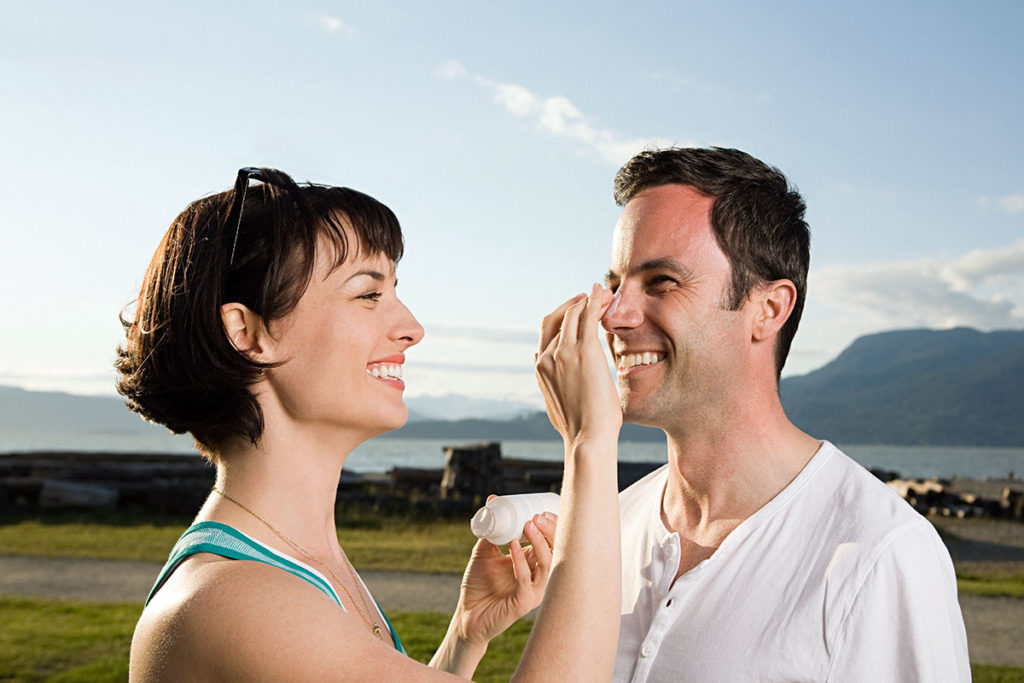
Anyone can develop skin cancer, including melanoma, no matter how dark or fair your skin. However, there are precautions you can take to reduce your exposure to the sun and its potentially harmful UVA and UVB rays.
Preventing Skin Cancer
Cover up
Wear long sleeved shirts, long pants, and a sun hat when you are planning to be in the sun for an extended amount of time. Wear sunglasses that filter ultraviolet rays to protect your eyes and the skin around your eyes.
Take shade
Seek shade, especially if your shadow is shorter than your height. The intensity of UV rays is directly related to the angle of the sun.
Wear sunscreen
Wear sunscreen with a sun protection factor (SPF) of at least 15 and reapply often. Sunscreens provide protection by absorbing, reflecting, or scattering the sun’s rays.
Avoid artificial tanning
Avoid tanning beds, tanning booths, and sun lamps. The link between ultraviolet (UV) radiation exposure from the sun, tanning beds, tanning booths, and sunlamps and melanoma is indisputable.
Get checked
Get regular whole-body skin exams. The earlier you find melanoma or skin cancer, the easier it is to treat successfully.
The sun’s ultraviolet rays are strongest between the hours of 10:00am and 4:00pm each day ––even on cloudy days –– so try to avoid the sun during this time. If you plan to be in the sun, wear protective clothing, seek shade when possible and use a broad-spectrum sunscreen with an SPF of 15 or higher.
What is a broad-spectrum sunscreen?
Sunscreen designed to protect your skin from both UVA ad UVB rays are considered broad-spectrum. UVA rays can prematurely age your skin, cause wrinkles and age spots, whereas UVB rays can burn your skin. Too much exposure to UVA and UVB rays can cause skin cancer.

